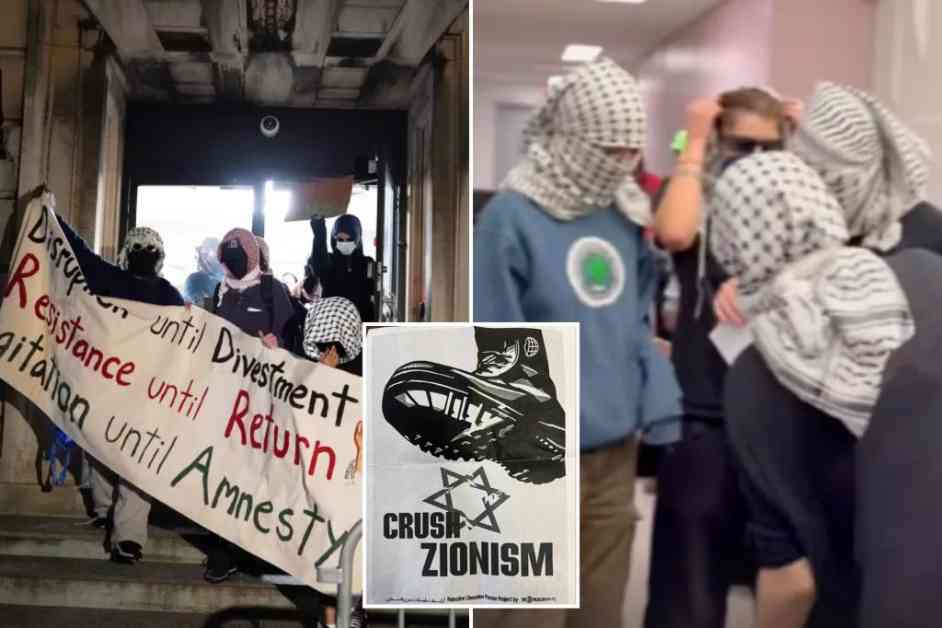Tentifada season has returned to campus, bringing with it a wave of unrest and chaos that recently unfolded at Barnard College’s Milbank Hall. On a Wednesday night, a group of anti-Israel protesters, organized by Columbia University Apartheid Divest, forcibly entered the hall, drumming and chanting slogans in a disturbing display of aggression. The walls of the hall were defaced with profanities and calls for a free Palestine, instigating fear and uncertainty among the college community.
This incident comes in the wake of a heinous terrorist attack by Hamas on Israel, further fueling the fervor of these protesters who have been causing havoc on elite college campuses. Their actions have escalated to the point of taking over buildings, disrupting campus activities, and even harassing Jewish students. The lack of meaningful disciplinary action against these individuals has emboldened them to continue their disruptive behavior.
The recent protest at Barnard was reportedly triggered by the expulsion of two students, leading to a mob of protesters storming Milbank Hall, intimidating administrators, and even physically assaulting an employee who had to be hospitalized as a result. The brazenness of these actions is indicative of a disturbing trend where individuals feel justified in resorting to violence to further their agenda.
### A Disturbing Pattern of Aggression
This is not an isolated incident, as similar acts of aggression have been witnessed at other institutions such as Columbia University, where protesters disrupted a class on the history of modern Israel by distributing antisemitic flyers depicting Nazi imagery. The protesters’ mission is ostensibly to challenge the disciplinary processes of these institutions and demand transparency, but their methods are questionable and their motives appear to be driven more by personal gratification than genuine social justice advocacy.
The protesters’ behavior, as captured in videos and social media posts, reveals a troubling power dynamic where authority figures are belittled and mocked by the demonstrators. The lack of respect for the college officials, exemplified by the treatment of Barnard Dean Leslie Grinage, reflects a deeper issue of institutional weakness and a failure to assert control over disruptive elements within the student body.
### The Need for Strong Leadership
In the face of escalating antisemitism and disruptive protests, there is a clear call for stronger leadership and decisive action to address these issues. Governor Kathy Hochul’s recent intervention in calling for the removal of a job listing at CUNY for a course on “Palestinian Studies” is a step in the right direction, but more needs to be done to root out systemic issues of intolerance and aggression within academic institutions.
The leadership vacuum that has allowed these protests to spiral out of control underscores the urgent need for a unified approach to address antisemitism and ensure the safety and well-being of all students, regardless of their background or beliefs. It is imperative that swift and effective measures are put in place to prevent further incidents of violence and intimidation on college campuses.
As the community grapples with the aftermath of the protests at Barnard College, it is clear that a new approach is needed to restore order and uphold the values of respect, tolerance, and inclusivity. Only through strong leadership and a commitment to justice and equality can we hope to overcome the challenges posed by divisive and destructive behaviors within our educational institutions.

